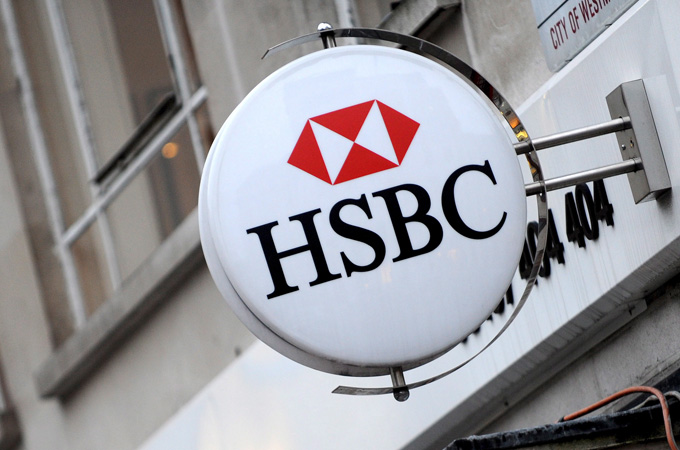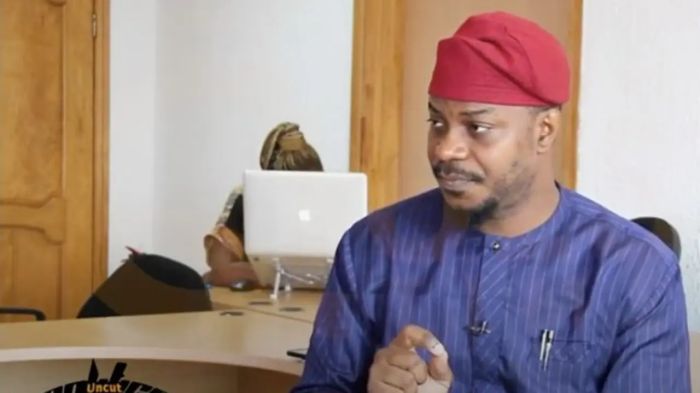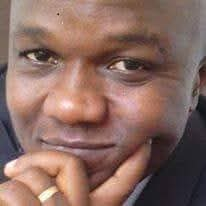UK banks ‘aided Nigeria corruption’, Investigations dig into more of HSBC’s antecedents

Five leading UK banks failed to adequately check funds they accepted from politicians accused of graft, watchdog said in 2010 report
Since the close of shop by HSBC and UBS, two global banking giants, in Nigeria has been politicized by opposition Peoples Democratic Party (PDP) Presidential Candidate, Alhaji Atiku Abubakar, trying to make it look like failure of All Progressives Congress (APC)-led Muhammadu Buhari Government’s economic policies, more investigated facts have continue to reveal the antecedents of the banks in their home country on England.

Atiku had raised an alarm that due to “incompetence” of Buhari some global banking giants were leaving Nigeria and using that as a game to score political point.
But critics hit back at the PDP’s 2019 presidential flagbearer, telling him that those banks, HSBC and UBS, could no longer stay in business in Nigeria due to the Treasury Single Account (TSA) police of the Buhari Administration, which basically makes business as usual difficult for corruption minded persons or businesses to thrive.
A peep into recent history exposed the antecedents of the banks, being celebrated by Atiku, as having been knocked on several occasions with regard to their nature of keeping looted money for some Nigerian politicians over their in banks abroad.
High street banks in the United Kingdom could have helped fuel corruption in Nigeria by accepting millions of dollars in deposits from dubious politicians in the west African nation, an international corruption watchdog said, according to a past report by Aljazeera (https://www.aljazeera.com/business/2010/10/201010116251929702.html?fbclid=IwAR1RUgwQr_TKaiEo5AHWDe5semzIHq0zyfzZsVhkXa4MTfFQEl9H7BEy67w) lifted on Tuesday 6 November, 2018 by The DEFENDER.
In a 40 page report released on Sunday 10 October 2010, Global Witness said that five leading banks had failed to adequately investigate the source of tens of millions of dollars taken from two Nigerian governors accused of corruption.
“Banks are quick to penalise ordinary customers for minor infractions but seem to be less concerned about dirty money passing through their accounts,” Robert Palmer, a campaigner at Global Witness, wrote on the group’s website.
“Large scale corruption is simply not possible without a bank willing to process payments from dodgy sources, or hold accounts for corrupt politicians.”
Global Witness had, according to the report being recapped, acknowledged that in accepting the money, Barclays, NatWest, Royal Bank of Scotland (RBS) and HSBC, as well as Switzerland’s UBS, might not have broken the law, but noted that the Financial Services Authority (FSA) must do more to prevent money laundering through British banks.
“The FSA needs to do much more to prevent banks from facilitating corruption. As yet, no British bank has been publicly fined or even named by the regulators for taking corrupt funds, whether willingly or through negligence,” Global Witness said in the report.
“This is in stark contrast to the United States, where banks have been fined hundreds of millions of dollars for handling dirty money.”
‘Deeply disappointed’
HSBC dismissed the allegations in the “International Thief Thief” report, saying that it had taken the lead in tackling holes in the financial system, particularly regarding funds from “politically exposed persons” (PEPs) deemed to pose a higher money laundering risk.
“As a bank that has been at the very forefront of developing global PEP guidance over the last decade, we are deeply disappointed with these misguided allegations,” a spokesman for HSBC told the Reuters news agency.
“Rest assured, rigorous and robust compliance procedures were followed diligently. To ignore this is to ignore the facts.”
HSBC, eight years after assuring of its rigorous and robust compliance procedures in denying the Global Witness report, has lately in 2018 been indicted for failing to comply with requirements in the Nigeria’s banking system leading to its, as well as UBS, shutting down their offices in Nigeria and leaving the country.
Barclays, HSBC and UBS are all members of the Wolfsberg Group, an international body set up in 2000 to try to improve global anti-money laundering procedures.
Global Witness said its findings were based on court documents from cases the Nigerian government had brought in London in an attempt to get funds returned that it said were stolen by two former state governors: Diepreye Alamieyeseigha of Bayelsa state and Joshua Dariye of Plateau state.
Alamieyeseigha was accused of corruption after he was caught with about $1.6m in cash at his London home. He was briefly jailed in Nigeria after pleading guilty to embezzlement and money laundering charges two years later.
Dariye was arrested in 2004 in London and was found to have purchased properties worth millions of dollars even though his legitimate earnings amounted to the equivalent of $63,500 a year.
He returned to Nigeria, where the anti-corruption agency has accused him of looting public funds. He has denied any wrongdoing.
Corruption ranking
The report did not provide any evidence that the funds accepted by the banks were the direct proceeds of any crime.
Africa’s most populous nation is regularly ranked one of the most corrupt countries in the world. It ranked 130th of 180 nations in Transparency International’s list of country’s perceived as most transparent in 2009.
Most of its 150 million people, as at then, was said to have been surviving on $2 a day or less, yet the country is one of the world’s top champagne importers and its wealthiest residents are among the continent’s richest.
“Nuhu Ribadu, the former head of its anti-corruption agency, has estimated that corruption and mismanagement swallow up about 40 per cent of Nigeria’s annual oil income.
“Without access to the international financial system, it would be much harder for corrupt politicians from the developing world to loot their treasuries or accept bribes,” Global Witness said in its report as published on Aljazeera website on Monday 11 October 2010.









